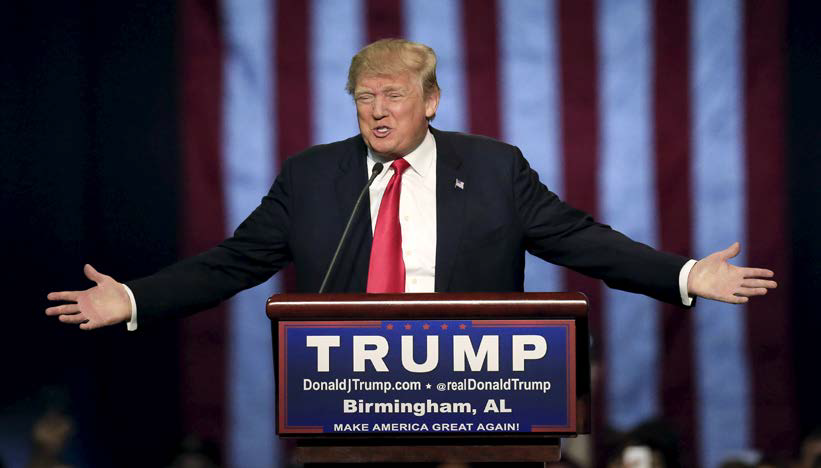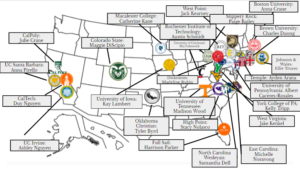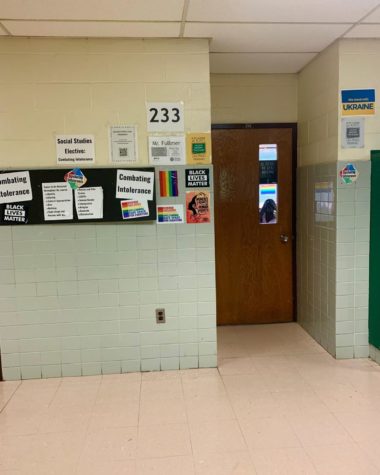Trump Defeats Clinton in Major Electoral Upset
December 7, 2016
 It’s fitting that the most memorable
It’s fitting that the most memorable
election in recent American history
would have the most memorable
conclusion. Against seemingly all odds,
Donald Trump defeated the Democratic
presidential nominee, Hillary Clinton, in
a decisive manner, earning 306 electoral
votes compared to her 232. He did this
by focusing on issues concerning both
foreign and domestic matters, including
job growth, immigration reform, terrorism
control, and the protection of the
Second Amendment. Trump’s emphasis
on these issues resonated well within his
base group of ardent supporters as well as with millions of other angry voters fed up
with the establishment. Disenfranchised
working-class Americans who were done
watching their jobs go overseas, voted for
Trump in droves because of his status as a
political outsider who could “shake things
up” in Washington, D.C. The idea of a successful
businessman in power was also a
welcomed thought for those dissatisfied
with the economy.
On the other side of the aisle, Hillary
Clinton sought to “break the glass ceiling,”
by becoming the first female president
of the United States. Although she did
make history by becoming the first female
presidential nominee of a major political party, she failed to recognize those angry working-class voters
who were drawn to Trump. This is most clearly shown in the
loss of vital states from her self-proclaimed “blue wall,” such
as Pennsylvania, Michigan, and Wisconsin, all of which were
supposed to be easy victories for her campaign. The major
polls used throughout the election cycle all had Clinton winning
by large margins, including the Huffington Post, which
stated that she had a “98% chance of winning the election.”
In an election where the Democrats received 5 million fewer
votes than Obama did in 2012, it’s extremely likely that these
polls influenced some Clinton voters to not even make the
trip out to the voting booth at all, based on the logic of Clinton
not needing their votes to win the election.
Other factors that might be to blame for Clinton’s loss
could also include the FBI director James Comey’s decision
to announce the reopening of her email investigation so close
to the general election, as well as the unyielding assault from
WikiLeaks that she and her campaign dealt with throughout
the entirety of her bid for the presidency. What this election really boils down to is the fact
that enough Americans wanted change so badly that they
were willing to elect Trump in order to get it. Clinton’s defeat
should be a wake-up call for establishment Democrats,
to transition away from accepting money and protecting corporate
interests, and go back to the days when they were the
beloved “worker’s party”. For better or for worse, change in
some form will most surely be achieved, with the introduction
of the new Republican controlled House, Senate, Presidency,
and Supreme Court (assuming Donald Trump follows
through on his promise to appoint conservative judges).
Concerning how all of this election business might affect
Falls Church High School in the future, Melania Trump’s
issue that she’s taking on as first lady is anti-bullying. Similar
to how Michelle Obama’s “healthy eating” cause influenced
the introduction of low-fat milk in our lunchrooms, we might
see a few more “bullying is bad” posters around the school,
once Trump takes office in January.














